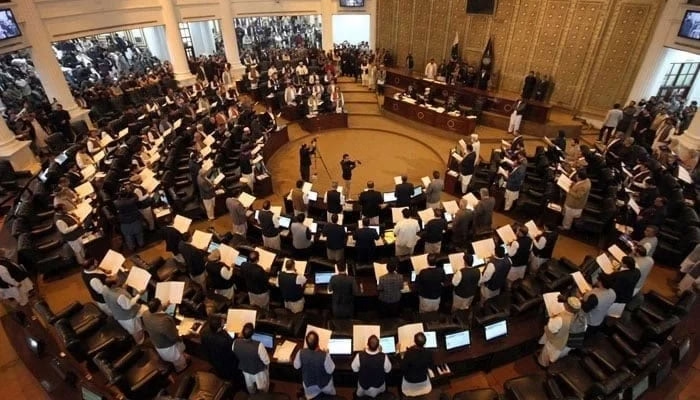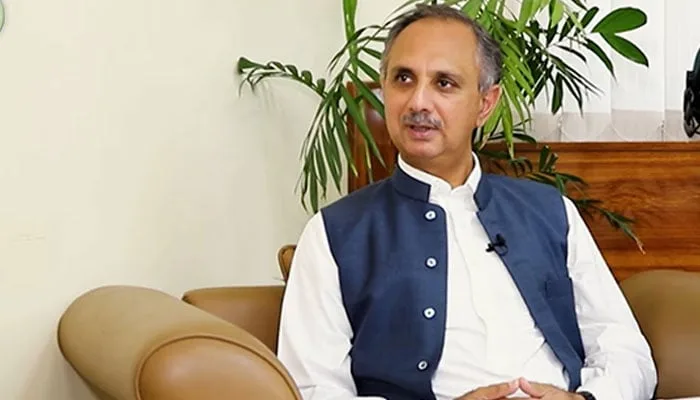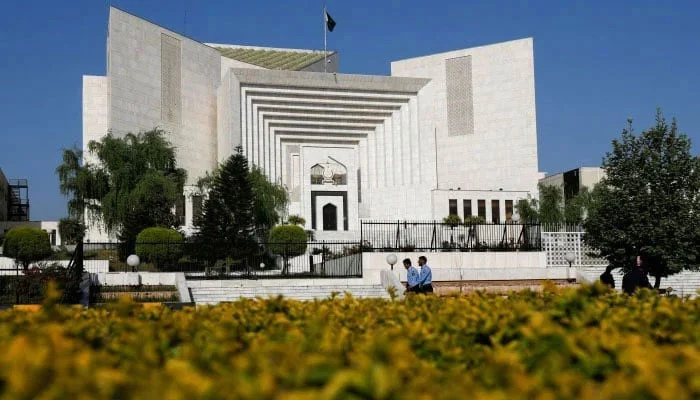In a significant political development, the Khyber Pakhtunkhwa (KP) government and opposition parties have moved closer to a mutual agreement ahead of the July 21 Senate elections, aiming to conduct the process through unopposed voting. The shift in strategy is seen as an effort to reduce political friction and avoid uncertain outcomes in a hotly contested provincial climate.
Quiet Late-Night Negotiations Yield Breakthrough
According to insider sources, the breakthrough came during late-night talks held between Wednesday and Thursday, where representatives from the ruling Pakistan Tehreek-e-Insaf (PTI) and the opposition finalized the outline of a power-sharing formula. The proposed arrangement includes a 6-5 seat-sharing formula, where PTI would receive six seats and the opposition would get five.
While this tentative agreement marks a step toward stability, internal divisions within PTI still pose a challenge. Several disgruntled party leaders have voiced dissatisfaction over being excluded from the ticket allocation process. Their continued resistance may complicate the leadership’s efforts to finalize the understanding.
CM Gandapur Given Crucial Task
To move the deal forward, KP Chief Minister Ali Amin Gandapur has reportedly been assigned a critical role: persuading dissenting PTI candidates to withdraw from the Senate race. Convincing them is seen as key to ensuring that the proposed 6-5 division holds and the Senate polls proceed without contest.
Both the government and the opposition appear highly motivated to avoid a competitive election, which could introduce instability and potential surprises. If the talks collapse and the process moves to a formal vote, the outcome becomes unpredictable, potentially triggering deeper rifts and uncertainty in the province’s political environment.
Final Talks and Joint Press Conference Planned
A final round of discussions is scheduled for Thursday, during which participants will be expected to ratify the verbal agreements made in the previous meeting. Following this, leaders from both PTI and the opposition are expected to hold a joint press conference to announce the outcome and reassure the public about their consensus.
Insiders suggest that near-unanimity has already been achieved, with only minor details left to iron out. The rare cooperation between political rivals reflects a growing recognition that collaboration is necessary in the current tense environment.
ECP’s Warning on Oath-Taking Complicates Timeline
Meanwhile, the Election Commission of Pakistan (ECP) has issued a strong reminder to KP authorities that newly elected Members of the Provincial Assembly (MPAs) on reserved seats must take their oath before participating in the upcoming Senate elections.
Earlier this week, ECP Secretary Omar Hamid Khan wrote to both the Governor and Chief Minister of KP, urging them to immediately summon an assembly session for oath-taking. The move is critical to ensuring that the electoral college is legally complete and that the Senate election scheduled for July 21 proceeds without legal hurdles.
According to the ECP, on July 2, a formal notification was issued confirming the election of MPAs on reserved seats for women and non-Muslims. However, these individuals have not yet been sworn in, which bars them from participating in any assembly proceedings, including Senate voting.
Khan reminded provincial authorities that under a constitutional ruling by the Supreme Court, the elected candidates cannot be considered active members of the assembly unless they take the oath. The ECP had earlier requested KP Assembly Speaker Babar Saleem Swati to arrange the oath-taking, but he responded that the assembly was not in session and he lacked the authority to call one on his own.
Citing Article 109 of the Constitution, the ECP emphasized that only the Governor has the power to summon a new session of the assembly, and thus urged immediate action to avoid any constitutional violations.
The convergence of high-stakes political negotiations and constitutional requirements has placed KP at a crossroads. On one hand, PTI and the opposition seem close to avoiding a contentious election through a rare power-sharing formula, while on the other, the ECP’s insistence on constitutional procedure creates an administrative challenge that could delay or derail the entire process.
With just days remaining before the scheduled Senate vote, all eyes are now on the KP Governor and whether he will act swiftly to fulfill the constitutional mandate. Failure to do so could risk invalidating the process and trigger judicial complications, further straining KP’s already volatile political climate.
As the province walks this tightrope, one thing is clear: the coming days will be decisive for both democracy and governance in Khyber Pakhtunkhwa.



